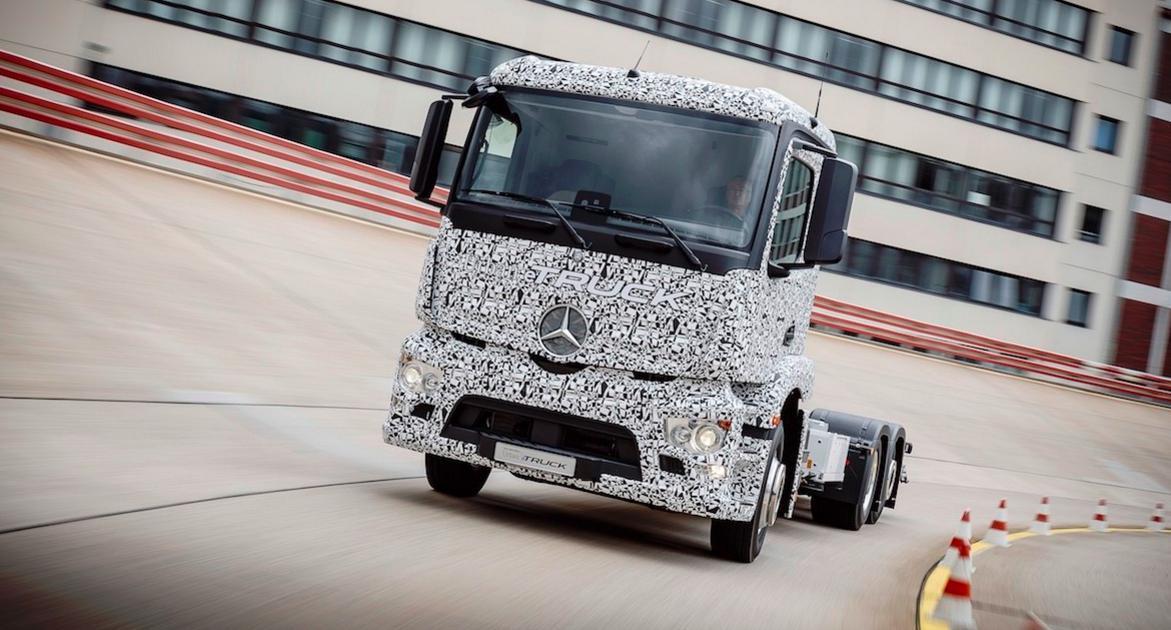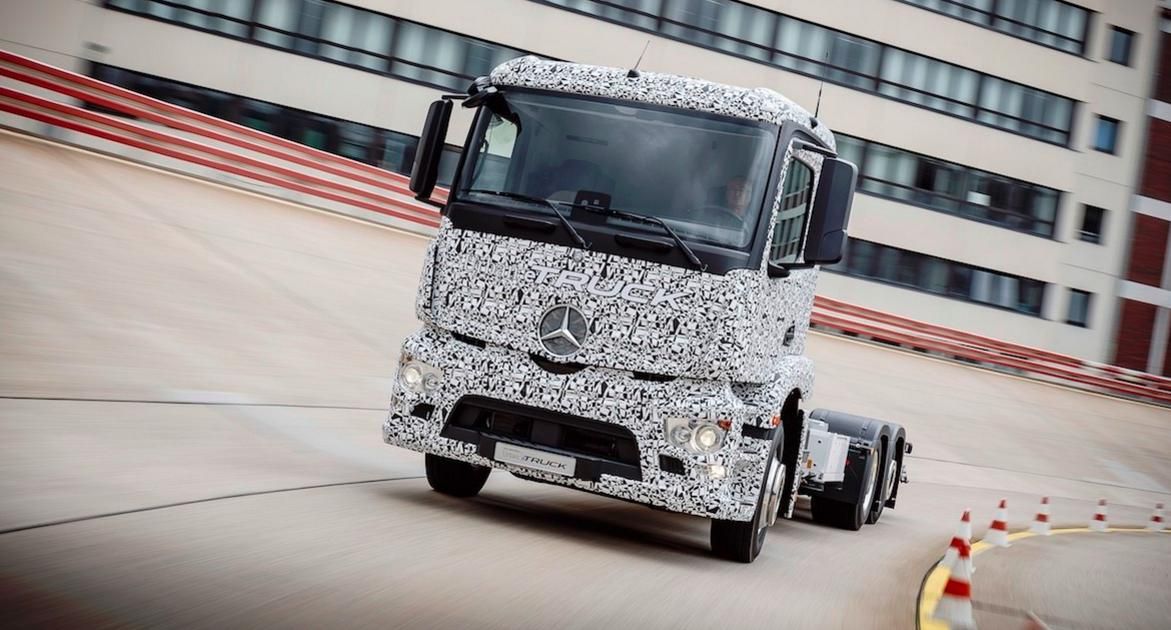

Mercedes-Benz has unveiled the world’s first big rig that drives without a drop of fuel.

The new
Mercedes-Benz Urban eTruck has an electrically driven rear axle and is powered by three lithium-ion battery modules. The zero-emission vehicle has an admissible total weight of up to 26 tonnes with a range of 200 kilometers (124 miles).
Although the range is on the low side, the model here is still a prototype. And, as Engadget pointed out, the “Urban” prefix implies that it’s meant for use in the cities instead of, say, cross-country hauls.
As for noise pollution? Hardly a whisper, the German carmaker says.
“In the future, it will be necessary to transport goods in urban environments for increasing numbers of people—and with the lowest possible emissions and noise,” Mercedes said in a press release. “By now large cities such as London or Paris are considering a ban on internal combustion engines in city centers in the future. That means: there will be fully electric trucks ensuring the supply of humans with food or other goods of daily needs.”
Daimler, the company tasked with creating the vehicles, said their eTruck will be ready for the market by the beginning of the next decade. At that point, Daimler believes battery technology will be vastly improved and estimated that the cost of batteries will lowered by a factor of 2.5.
“We push the boundaries of what is technically feasible, very widely to the front,” Wolfgang Bernhard, the CEO of Daimler Trucks and Buses, said.
Watch here as the eTruck whizzes down Germany’s streets:
“To date the use of electric drives in trucks has been extremely limited,” Bernhard added. “Meanwhile, cost, performance and charging time evolve so rapidly that we now see a turnaround for distribution: It’s time for the electric truck.”
He’s right—this is a much-needed upgrade as heavy duty vehicles are some of the biggest polluters on the road. According to
Slate:
Transportation is responsible for 28 percent of the nation’s carbon emissions, second only to power plants at 31 percent. By nearly any measure, trucks play an outsize role in contributing greenhouse gas. They comprise just 4.3 percent of vehicles in the U.S., drive 9.3 percent of all miles driven each year, yet consume more than 25 percent of the fuel burned annually.
The Obama administration has made major efforts to slash truck emissions. Last year, in an effort to slash emissions and fight climate change, the U.S. Environmental Protection Agency and National Highway Traffic Safety Administration proposed new fuel-efficiency and carbon-cutting standards for trucks and other large vehicles. The proposal is meant to cut emissions by 1 billion metric tons, trim fuel costs by $170 billion and reduce oil consumption by 1.8 billion barrels, U.S. News reported.
120 years ago #Daimler built the worlds first truck, now we see the birth of the worlds first 26 ton electric #truck pic.twitter.com/jx1GpPjpof
— Mercedes-Benz Trucks (@MercedesTruckUK) July 28, 2016
Mercedes might have beat him to it, but Elon Musk also has a vision of all-electric trucks. As the Tesla CEO wrote in his now-famous
Master Plan, producing electric buses and heavy duty trucks are part of his vision of transitioning to a sustainable transportation future.
“In addition to consumer vehicles, there are two other types of electric vehicle needed: heavy-duty trucks and high passenger-density urban transport,” he wrote. “Both are in the early stages of development at Tesla and should be ready for unveiling next year.”
“We believe the Tesla Semi will deliver a substantial reduction in the cost of cargo transport, while increasing safety and making it really fun to operate,” Musk continued.
Incidentally, Musk even has some Daimler talent on his team to bring his vision to life. Jerome Guillen, a longtime Daimler engineer who helped develop the Cascadia truck, is in charge of the Tesla Semi program,
Electrek reported.
Jerome is driving Tesla Semi & doing a great job with his team. At Daimler, he led their most successful semi truck program ever.
— Elon Musk (@elonmusk) July 21, 2016
Mercedes and Daimler also has the
world’s first autonomous bus to its name, so Musk and his Tesla team definitely have some friendly competition in this arena.
SUPER COOL! World's First Self-Driving Bus Drives Flawlessly Through Amsterdam https://t.co/YPa1dnz1d9 @MercedesBenz @mzjacobson @edbegleyjr
— EcoWatch (@EcoWatch) July 20, 2016

 233k
233k  41k
41k  Subscribe
Subscribe 